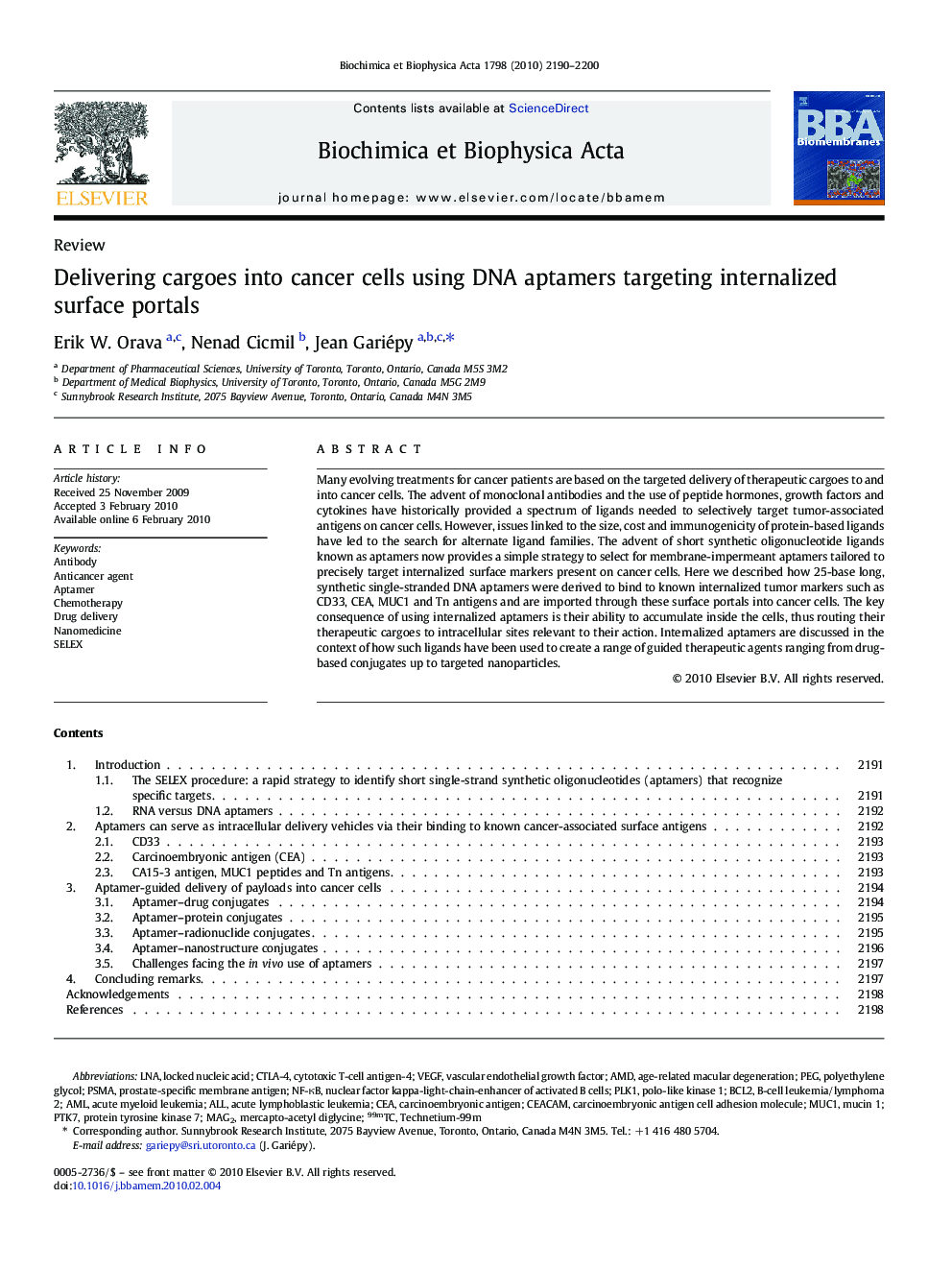| Article ID | Journal | Published Year | Pages | File Type |
|---|---|---|---|---|
| 1944592 | Biochimica et Biophysica Acta (BBA) - Biomembranes | 2010 | 11 Pages |
Many evolving treatments for cancer patients are based on the targeted delivery of therapeutic cargoes to and into cancer cells. The advent of monoclonal antibodies and the use of peptide hormones, growth factors and cytokines have historically provided a spectrum of ligands needed to selectively target tumor-associated antigens on cancer cells. However, issues linked to the size, cost and immunogenicity of protein-based ligands have led to the search for alternate ligand families. The advent of short synthetic oligonucleotide ligands known as aptamers now provides a simple strategy to select for membrane-impermeant aptamers tailored to precisely target internalized surface markers present on cancer cells. Here we described how 25-base long, synthetic single-stranded DNA aptamers were derived to bind to known internalized tumor markers such as CD33, CEA, MUC1 and Tn antigens and are imported through these surface portals into cancer cells. The key consequence of using internalized aptamers is their ability to accumulate inside the cells, thus routing their therapeutic cargoes to intracellular sites relevant to their action. Internalized aptamers are discussed in the context of how such ligands have been used to create a range of guided therapeutic agents ranging from drug-based conjugates up to targeted nanoparticles.
